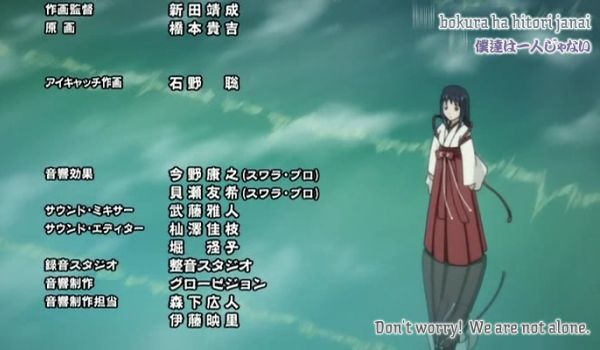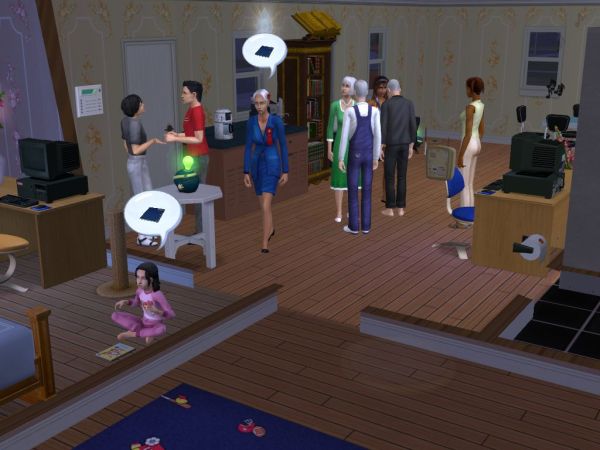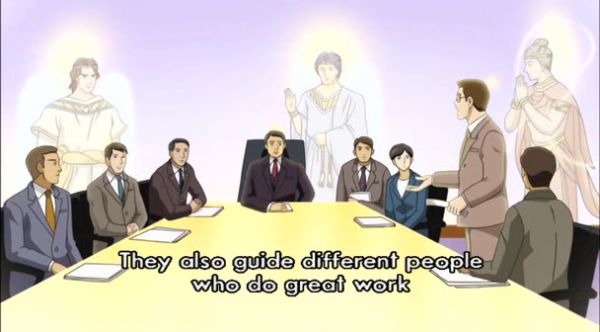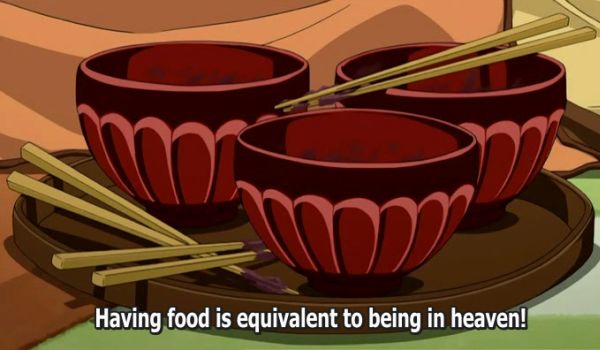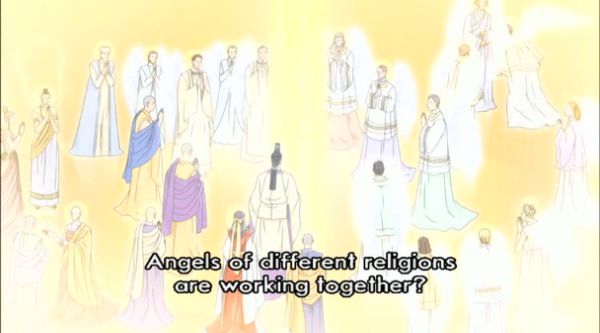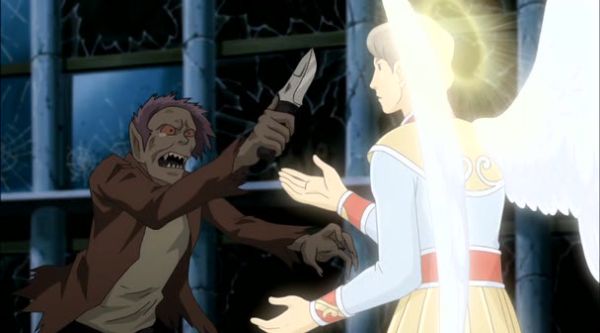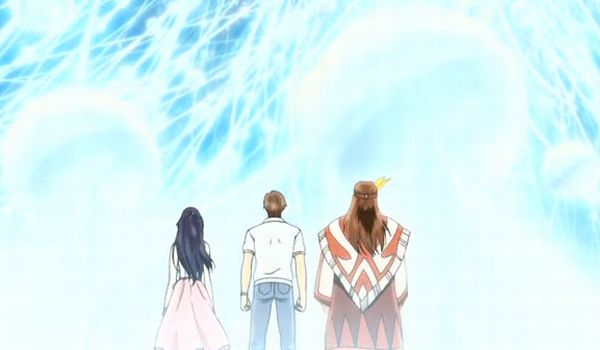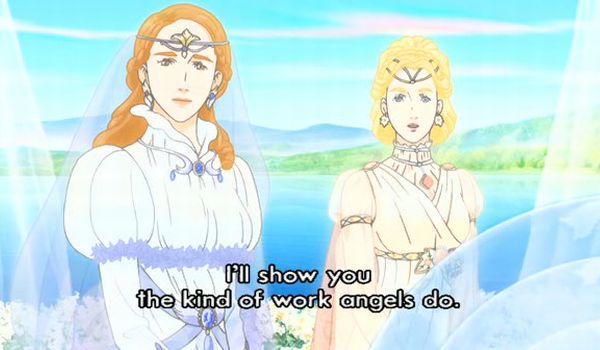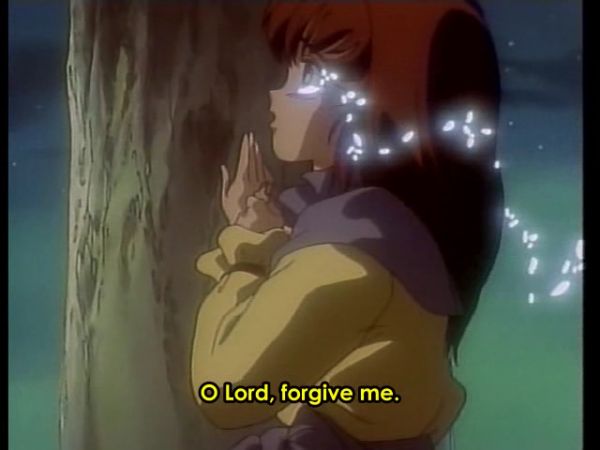Don’t worry! We are not alone. Well, I guess that depends on how you see it. Â This entry owes its existence to me watching another anime where someone says “Don’t fear, you are not alone” as if this was a perfectly reasonable thing to be afraid of.
This is a kind of recurring topic, I guess. Or at least I have written about it more than once.  But I think it can take another round, because it is so alien to most people.  I mean, if some blogger writes that he is gay, or that he is afraid of dogs, or that he uses a wheelchair, those are all unusual; but they still fit into categories that already exist in your mind.  But if I say that I prefer a life of  near solitary confinement, there just is no mental category for that.
“Single” doesn’t even begin to approach it. “Celibate” is mostly about sexual abstinence, or at least that is how people think of it. Â “Hermit” is someone who lives out in the woods without electricity. Â I don’t do that. Â I go to work like a good office rat, I just avoid the watercooler. Â Whenever possible I just work with the computers, although I have no fear of my coworkers: Â I will approach them when needed to get a job done. Â They are nice enough people. Â But to compete with solitude you need to be truly great. Amazing, really. There have not been many such people in my life. (And I probably wasn’t all that amazing in their lives either.)
The confusing thing is that I am not alone when I am alone.  Well, almost never. I have experienced feeling truly alone and abandoned, and it was hellish beyond any physical pain I can remember. I can easily understand why people will  cut or even burn themselves to try to drive away the pain in the soul, but I doubt it works for long. Luckily, for me those were just brief episodes, albeit episodes that had a lasting effect on my life. Not that I would want to have that kind of lesson taught me again if I can avoid it.
To once again invoke Happy Science and the books by Ruyho Okawa, they assume that each of us have at least one guardian angel. Â Usually these days there is also a second angel, a guiding angel. Â I am honestly not sure if that is the Presence I experience each day, or whether that is actually God, or even some part of myself – but if so, it is far more than my better half: It is towering above me intellectually and ethically. Â It is hard to imagine how I would end up in charge of my body, how I would end up being the ego, the conscious one, if my subconscious held someone like that. Â Yet the Presence does not try to depose me and take control of my body – though it may occasionally influence it to halt me in my tracks if I am going dangerously wrong – but generally it is more like a saintly, tolerant older brother. Â (I know this because I actually have a saintly, tolerant older brother, although we did not spend that much time together. Â It is not a memory of him I experience, but there are certain similarities.)
I may get back to this topic. It is quite fascinating. Â But for now, let us just accept the fact that when I am alone, I don’t feel alone. Â It is not just that I don’t feel lonely. Â Rather, there is a distinct experience or at least assumption of Presence. Â Sometimes it is definitely more of an experience, while at other times I just take it for granted.
It seems a bit unfair, I guess, albeit in my favor. Â While the voices in some people’s head say “Stab someone with a knife! Stab someone with a knife! Stab someone with a knife!”, mine says “The spaghetti is finished” or “Don’t just lie there and pray, go call a doctor.” (OK, so that was only once, but the spaghetti is pretty common.) Much of the time the Presence is not even close to speaking. Â It may illuminate something I read so that I understand it with unexpected clarity, or remind me of something I heard long ago. Â Or it may simply be there, quietly keeping an eye on me while I do my own things, or listening while I try to sort out my thoughts.
Women are definitely more sexy, but in pretty much any other regard they draw the short stick over and over. Â There is simply no way to compete with someone who is closer to me than my own skin, nearly as much a part of my life as the beating of my heart. Â Well, unless you’re the one Chris de Burgh sings about in his ballad Forevermore:
You are my lover,
you are my friend,
you are my life to the very end.
You bring me comfort,
you keep me warm,
you give me hope,
you make me strong.
You take me away to a distant shore,
and it’s with you that I want to stay
forevermore.
Forever is a long time. But I don’t mind, if it is like this. In truth, the main reason I am afraid of death is that I hear from so many that there is some kind of justice in the Hereafter, and I fear that this means I will have to part with my undeserved companion. If it were the other way around – if I were alone now but the Presence was waiting for me on the Other Shore – well, it is hard to say something like this for sure when Death is not breathing down my neck, but I think I would cross over with some semblance of dignity at least. But that is not how it is. Unfortunately for my death, but very fortunately for my life, I already have here something that others hope for in the afterlife.

